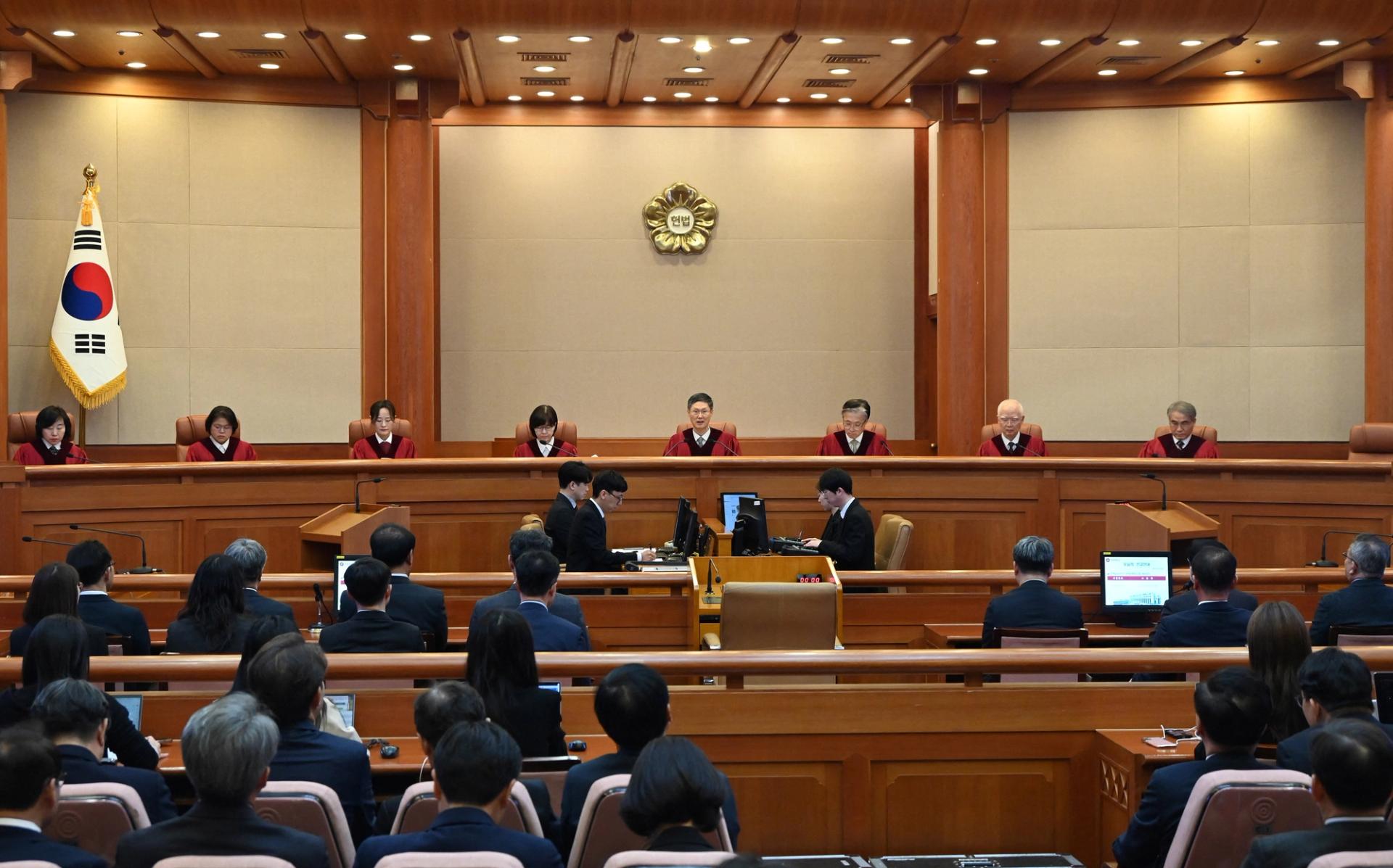The News
South Korean President Yoon Suk Yoel was permanently removed from office over his failed attempt to impose martial law last year.
South Korea’s Constitutional Court unanimously agreed to uphold Yoon’s impeachment Friday after eight weeks of deliberations. The acting chief justice said Yoon had “committed a great betrayal of the trust of the people.”
Despite Yoon’s defiance ahead of the ruling, he and his party both accepted the ruling with apparent humility: The now-former president told the people that he was “very sorry and regretful that I could not live up to your expectations.”
SIGNALS
The next president faces an uphill battle to heal divisions
Yoon’s removal highlights the resilience of South Korea’s democratic institutions but the saga also laid bare its deeply polarized society, The Economist’s East Asia bureau chief said: Yoon will continue to be a “political lightning rod” in the short term as he faces separate criminal charges, and whoever the next president is — Yoon’s conservative party is yet to rally behind a single candidate — faces an uphill battle in returning the country to stability. South Korean politics remains ideologically divided along Cold War lines, and “with little commonality between [conservative and progressive] factions, politics has metastasized into a winner-takes-all, where ultimately, both sides lose,” Time Magazine’s editor-in-chief argued.
Political uncertainty could derail trade negotiations with Trump
South Korean financial markets welcomed Yoon’s removal, but an ING economist warned the relief rally is likely to be “short-lived” owing to political uncertainty over the upcoming presidential election, and the impact of US reciprocal tariffs. The political vacuum has left South Korea — already vulnerable to tariffs given its export-oriented economy — “without a clear policy direction” for negotiating with Trump, Bloomberg noted, and a trade deal with the US could be delayed until a new administration is in place, an economist told The Korea Herald. “For the next two months, Seoul will not be able to properly respond to Trump’s fast-paced decisions, let alone coordinate with Washington on key foreign policy challenges,” a security expert told Reuters.


